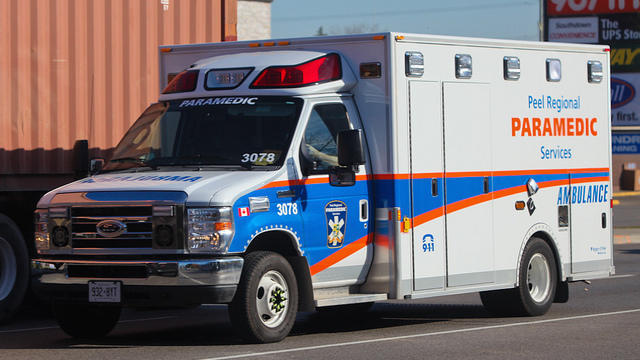When (and When Not) to Dial 911 in Mississauga
Published January 4, 2017 at 10:32 pm

Although most people understand that 911 should only be dialed during emergencies, it seems some casual calls make it to police and other emergency services fairly frequently.
In fact, people recently called police to complain that an Amber Alert–which was put out the day an 11-year-old girl was tragically murdered–disrupted their sleep.
Recently, Peel police announced that the force received close to 320,000 911 emergency calls in 2016. Of all those calls, a whopping 29 per cent were not emergencies.
So, in a world where everyone is told–often from a very, very young age–that 911 is for life and death situations, why are less crucial calls being made on a semi-regularly basis?
Perhaps it’s because there’s a lack of clarity on what, exactly, constitutes an emergency. It also may be because people don’t realize they can contact the police regarding non-urgent matters by dialing their non-emergency line (for reference, the number is 905-453-3311).
So, what’s NOT an emergency?
- Inquiries about fines (do not call 911 to challenge or ask questions about a traffic ticket)
- A minor traffic annoyance (if you want to report someone for disobeying a traffic rule when no collision has occurred, you can learn more about that here)
- Complaints about poor customer service at a shop or restaurant
- Inquiries about laws and legal matters
- Inquiries about job opportunities with the police force
- Minor legal issues that can reported online (minor theft, theft from your vehicle, minor damage to your vehicle or property, etc.)
- Your garbage hasn’t been picked up or a city bylaw (such as a noise ordinance) is being violated (while police can field noise complaints–just be sure to dial the non-emergency number–garbage complaints should be directed to the region or your city)
It is appropriate to dial 911 when you’ve lost control of or are witnessing an out-of-control fire, when you or someone else is experiencing a life-threatening medical emergency or when you’re witnessing a crime in progress/believe you may become a victim of violent crime.
In short, 911 is for life and death situations.
Now, sometimes it’s possible to dial 911 by accident. The number has been called during unfortunate butt-dialing incidents and childhood phone explorations gone awry (police advise parents of little ones to remove batteries from old phones before letting children play with them, as inactive phones can still call 911).
If you do call 911 by mistake, you should stay on the line so that you can explain the situation to operators.
To keep butt or purse-dials from happening, lock or password protect your phone. You should also avoid programming 911 into your contacts, as doing so makes an accidental call more likely.
While it’s easy enough to misunderstand what constitutes an emergency, it’s important to remember that non-emergency calls take time and resources away from residents whose straights are genuinely dire. A rude driver who hasn’t caused an accident does not require a 911 call, but a break-in in progress most certainly does.
You might also want to remember that you can dial 3-1-1 to inquire about regional and municipal issues (animal welfare and control, building permits, financial assistance, appointments at regional health clinics, etc) and 2-1-1 if you or someone you know has a non-emergency community, health or social service inquiry.
Here’s hoping for a few less non-emergency 911 calls in 2017.
insauga's Editorial Standards and Policies advertising





